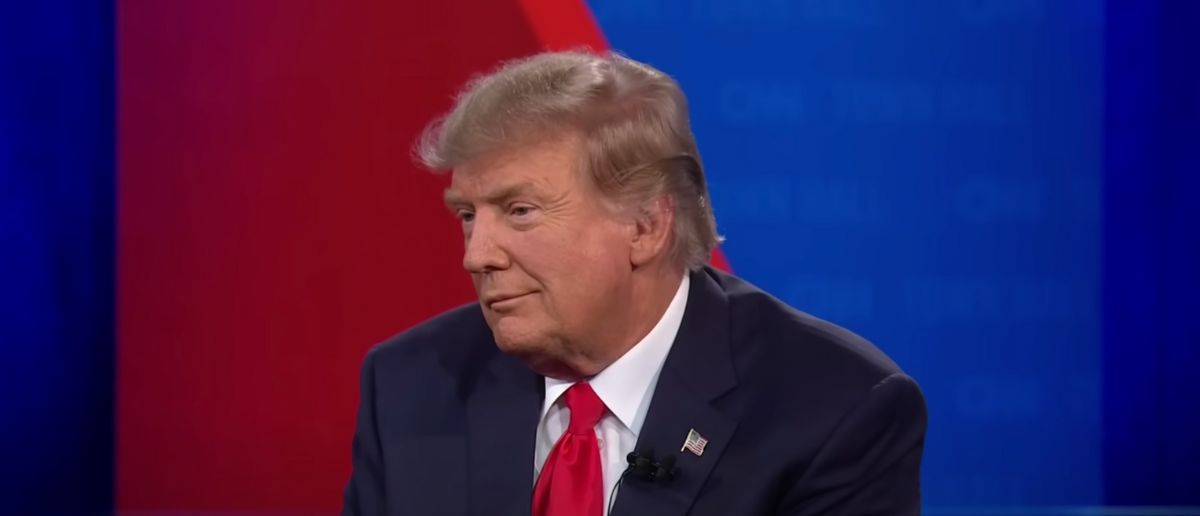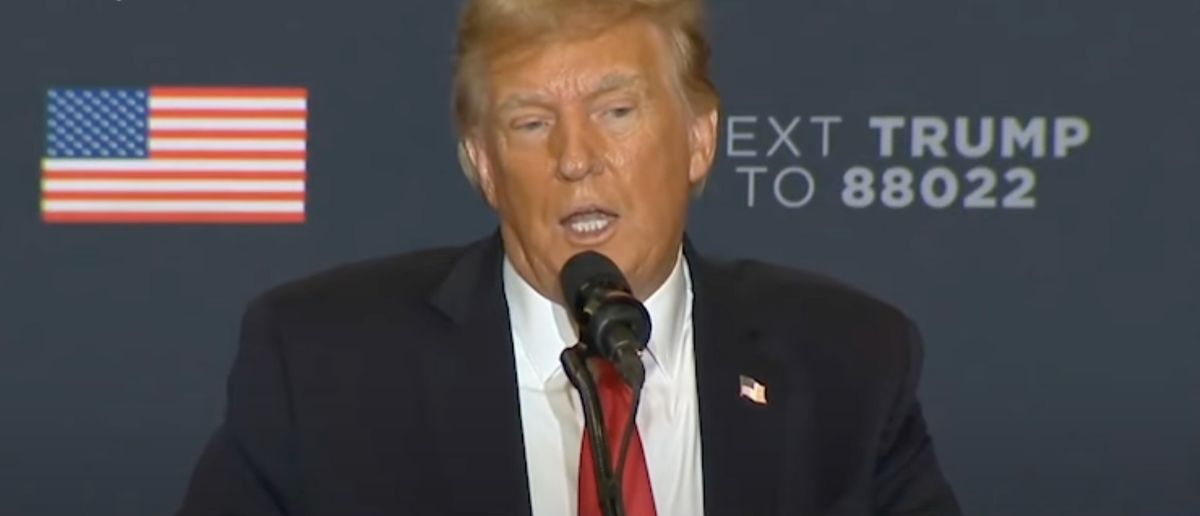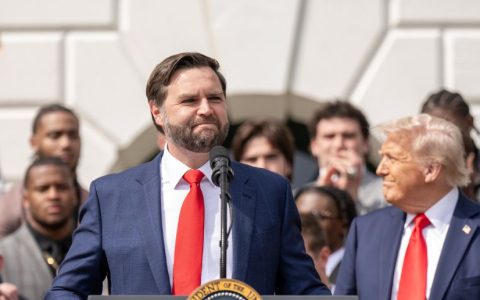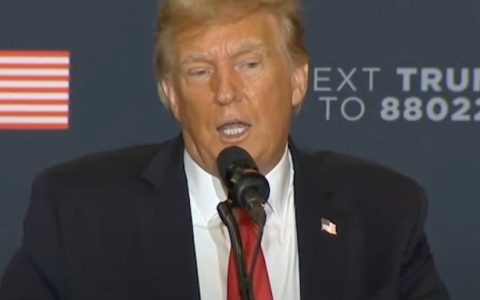
There’s long been a deep state effort to get rid of Donald Trump. That’s been the case since his first term.
That’s why President Trump was blown away by declassified memos about an FBI agent trying to oust him.
Declassified FBI Memos Reveal Deep-State Conspiracy Against Trump’s Presidency
As President Donald Trump navigates the heart of his second term, newly declassified memos from disgraced FBI official Andrew McCabe have exposed a sinister campaign by establishment insiders to derail his first administration. These documents, spanning January to May 2017, unveil a calculated effort to perpetuate the baseless Trump-Russia collusion narrative, targeting Trump and his allies with unrelenting hostility. Declassified through the persistent efforts of Trump and FBI Director Kash Patel, the memos lay bare a deep-state plot to undermine a president chosen by the American people.
The eight memos, largely concealed until this month, detail McCabe’s actions during a critical period—from just before the FBI’s ambush of Lt. Gen. Mike Flynn to the appointment of Robert Mueller as special counsel. McCabe, a close ally of fired FBI Director James Comey, collaborated with disgraced agent Peter Strzok and leaned on FBI lawyer Lisa Page as his confidante. Together, they drove the flawed Crossfire Hurricane investigation, built on the discredited Steele dossier, which McCabe and Comey championed despite its lack of verifiable evidence.
In December 2016, McCabe and Comey fought to include Christopher Steele’s dossier—a collection of unverified allegations against Trump—in the Intelligence Community Assessment on Russian interference. Blocked by the NSA and CIA, they relegated it to an annex. By early 2017, the FBI knew the dossier was baseless. A December 2016 FBI spreadsheet found no substantiated claims, and a January 2017 interview with Steele’s source, Igor Danchenko, dismantled the collusion narrative. Yet, McCabe’s memos show he pressed on, determined to keep the investigation alive.
McCabe’s first major move was targeting Flynn, Trump’s national security adviser. On January 24, 2017, McCabe called Flynn, setting up an FBI interview that day. “I told LTG Flynn that I had a sensitive matter to discuss,” McCabe wrote, noting that he and Comey wanted Flynn to detail his talks with Russian Ambassador Sergey Kislyak. Flynn, unaware he was under scrutiny, remarked, “you listen to everything they say,” acknowledging surveillance. McCabe urged Flynn to speak without a lawyer, framing it as a “quick and discrete” conversation.
Comey later boasted about exploiting the Trump administration’s early chaos. “I sent them,” he told MSNBC’s Nicolle Wallace in 2018, referring to agents Strzok and Joseph Pientka, who interviewed Flynn. “Something I probably wouldn’t have done or maybe gotten away with in … a more organized administration.” This brazen admission, met with audience laughter, reveals the audacity of the FBI’s tactics, orchestrated by McCabe and Comey to capitalize on Trump’s vulnerabilities.
The Flynn interview was a setup. Despite no evidence of wrongdoing, the FBI kept Flynn’s case open. Strzok, learning in January 2017 that it wasn’t closed, texted Page, calling it “serendipitously good” news, adding, “our utter incompetence actually helps us.” McCabe’s memos reveal he hid from Flynn that the interview was part of a broader probe targeting Trump’s campaign, a deception that paved the way for Flynn’s prosecution for allegedly lying about his Kislyak calls.
Media leaks fueled the FBI’s campaign. In early 2017, classified details of Flynn’s Kislyak calls surfaced in The Washington Post, citing anonymous sources. McCabe told Flynn he was “quite concerned” about leaks, promising a DOJ investigation, but no leakers were ever identified. These leaks, paired with claims that Flynn violated the obscure Logan Act, sparked a media firestorm that pressured Trump’s team. McCabe’s advice to Flynn to forgo a lawyer further stacked the deck against him.
The Obama administration played a significant role. Declassified 2020 documents show Obama’s direct interest in Flynn. An email by Susan Rice detailed a January 2017 Oval Office meeting where Obama raised concerns about Flynn’s Kislyak calls. Sally Yates, then-Deputy Attorney General, learned of the FBI’s recordings from Obama, not Comey. Strzok’s handwritten notes suggest then-Vice President Joe Biden invoked the Logan Act, a dormant statute, as a potential tool against Flynn.
McCabe’s memos also cover his February 10, 2017, meeting with Vice President Mike Pence, where he shared Flynn-Kislyak transcripts. Pence, unaware of the full context, grew frustrated upon learning Flynn discussed sanctions, contradicting earlier assurances. “The Vice President appeared frustrated and noted that Mr. Flynn initiated the discussion on that topic,” McCabe wrote. This meeting, days before Flynn’s forced resignation, highlights McCabe’s role in sowing discord within Trump’s inner circle.
The FBI’s tactics extended to shaping public perception. On February 15, 2017, McCabe met with White House Chief of Staff Reince Priebus and refused to publicly debunk a New York Times story alleging Trump campaign collusion with Russia, despite admitting it was “largely inaccurate.” McCabe advised Priebus against Trump tweeting about it, citing concerns about exposing FBI methods. This refusal allowed the collusion narrative to persist, undermining Trump’s first term.
Comey’s firing on May 9, 2017, was a pivotal moment. McCabe’s memo details his meeting with Trump that day, where Trump noted Comey had assured him three times he wasn’t under investigation. McCabe saw Comey’s ouster as a chance to escalate. FBI notes from his Mueller team interview show he opened an obstruction of justice probe against Trump, citing Trump’s NBC interview with Lester Holt about Russia. McCabe aimed to ensure the investigations had a “clear, un-erasable footprint,” fearing his own potential firing.
McCabe’s push for a special counsel was relentless. On May 12, 2017, he met with Deputy Attorney General Rod Rosenstein, urging a special counsel to bolster the investigation’s “credibility.” Rosenstein, rattled by his role in Comey’s firing, feared termination but was persuaded by McCabe’s arguments. “I thought it would help to preserve the credibility of the investigation,” McCabe wrote, exploiting Rosenstein’s vulnerabilities.
Comey’s own actions greased the wheels for Mueller’s appointment. His leaked memos, shared with friend Daniel Richman to spur media coverage, were designed to force the DOJ’s hand. “I hoped leaking this information might prompt the appointment of a special counsel,” Comey testified in 2017. The New York Times published details from Comey’s memos, alleging Trump demanded loyalty and sought to halt the Flynn probe, creating the pressure Comey intended.
On May 16, 2017, McCabe told Rosenstein the FBI was formally investigating Trump for collusion and obstruction. His memo recounts Rosenstein suggesting he wear a wire to record Trump, a proposal McCabe said he’d consider. Lisa Page’s memo corroborates this, noting Rosenstein’s wire suggestion amid talks about McCabe’s potential FBI director interview. Rosenstein later denied these claims in 2018, calling them “inaccurate,” but the memos paint a troubling picture.
Mueller’s appointment as special counsel on May 17, 2017, marked the culmination of McCabe’s efforts. When Rosenstein suggested McCabe recuse himself from the investigation on May 21, citing a photo of McCabe in a campaign t-shirt for his wife’s 2015 Virginia Senate run, McCabe refused. “I told the DAG that I did not believe he was in a position to order me,” McCabe wrote, ensuring his continued grip on the probe.
The 2023 Durham report exposed Crossfire Hurricane’s flaws, finding it lacked basic due diligence and failed to corroborate any Steele dossier allegations. McCabe, described as “heavily involved” by FBI agent Jennifer Boone, drove the probe despite its weaknesses. Yet, on CNN in 2023, McCabe defiantly defended the investigation, dismissing Durham’s findings as a “political errand.”
McCabe’s career ended in disgrace. Fired in March 2018 after a Horowitz report found he misled investigators about leaking Clinton Foundation probe details, McCabe sued the DOJ, claiming Trump orchestrated his ouster. A 2021 settlement by Attorney General Merrick Garland reversed his firing, prompting Sen. Chuck Grassley to decry letting a “disgraced” official “off the hook.”
Now, in the midst of Trump’s second term, these memos serve as a stark reminder of the establishment’s relentless efforts to sabotage his leadership. McCabe, Comey, and Strzok weaponized the FBI, using leaks, false narratives, and dubious investigations to destabilize Trump’s first administration.
Stay tuned to the DC Daily Journal.





